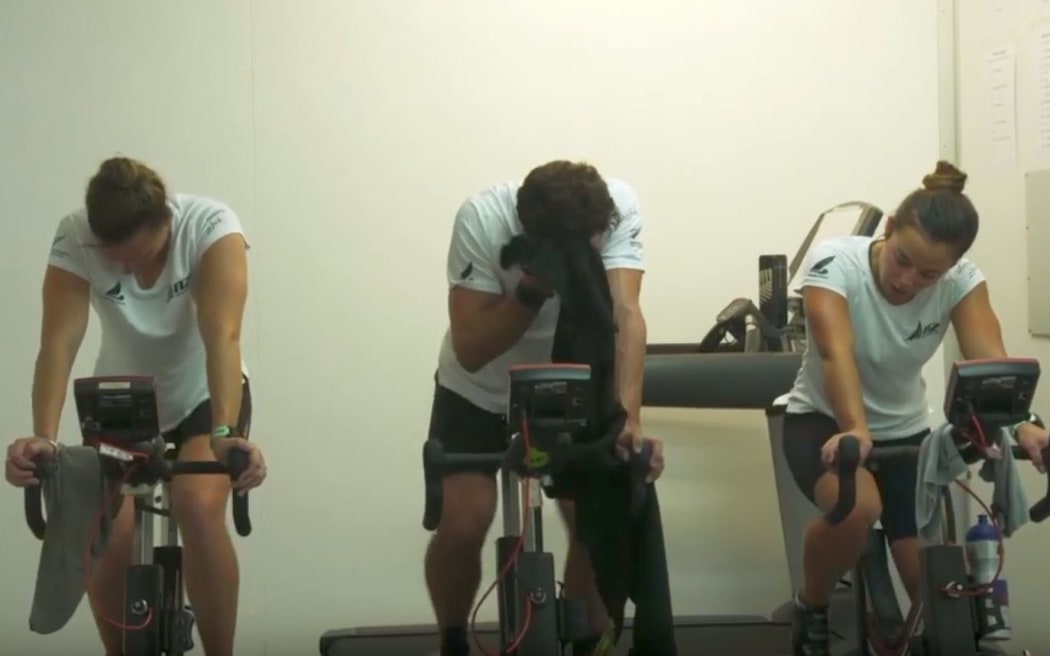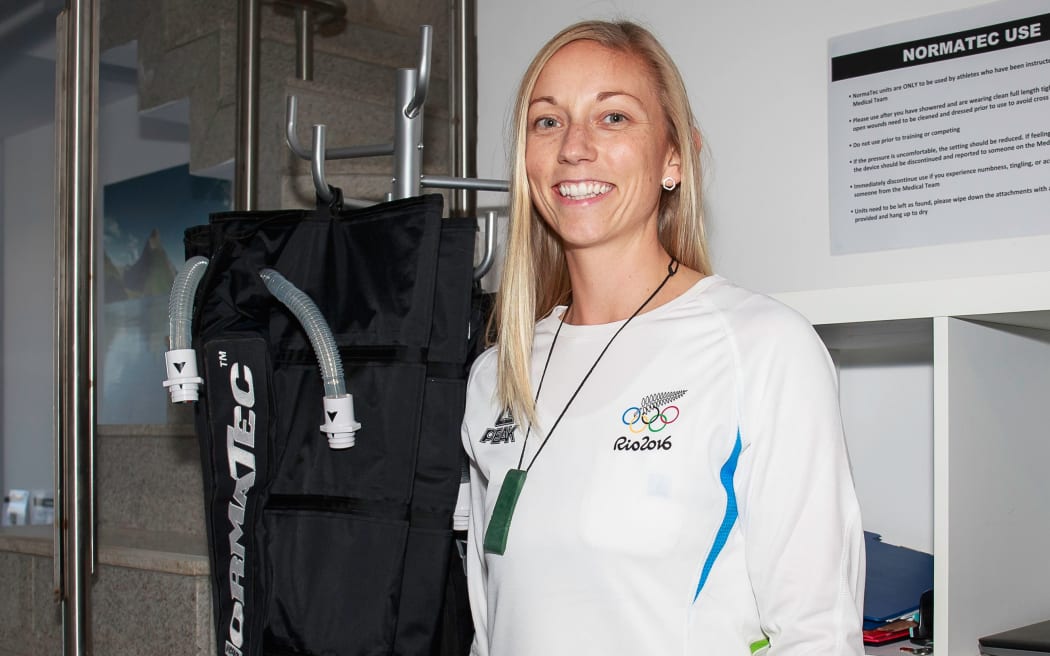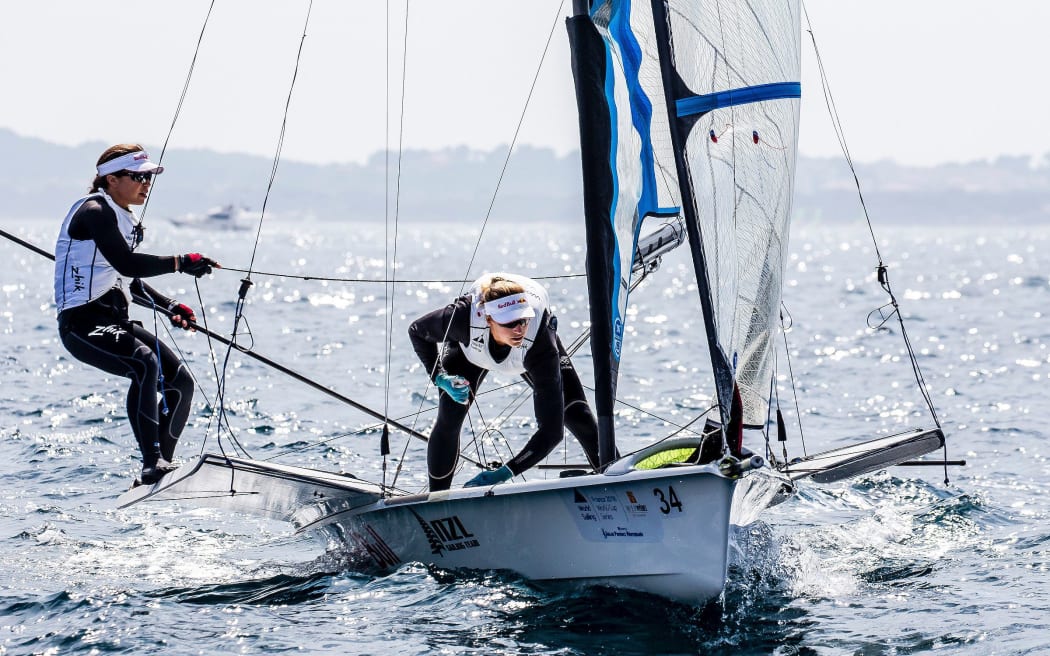Next year's Tokyo Olympics are expected to be the hottest ever, and NZ athletes are preparing for the sweltering conditions with a special heat chamber.

Athletes inside the heat chamber at the Millienium Institute on Auckland's North Shore. Photo: RNZ
World-class opposition won't be the only thing standing between New Zealand's top athletes and success at next year's Tokyo Olympics.
Next year's Games in Japan are expected to be the hottest in Olympic history.
It's a prediction that's had Kiwi officials working for three years on a strategy to ensure the performance of their athletes isn't overly impacted by the sweltering conditions.
A strategy they believe can provide New Zealand's best with a competitive advantage.
A key part of the approach has been a small room, nestled away inside the Millienium Institute on Auckland's North Shore.
For sailor Molly Meech, a silver medallist alongside Alex Maloney at the 2016 Games in Rio, High Performance Sport New Zealand's heat chamber could be the difference between delight and disappointment.
"Being aware of the heat, like everyone's talking about it, but actually doing this and then experiencing Japan itself, it's going to be a pretty key factor in being able to control how you react in the heat.
"I think it can be a definite game changer."
Watch Clay Wilson's video report, including his stint in the heat room, here:
While temperatures of nearly 40 degrees are predicted for the 2020 Games, the addition of high humidity could mean it almost feels like 50.
Conditions not only of risk to performance but equally athlete health.
The head of High Performance Sport New Zealand's heat strategy for Tokyo, Julia Casadio, said the heat chamber caused physiological changes in the athletes, making them better equipped to handle the conditions.
"The sailors, when they are competing, they're on the water for up to three or four hours.
"To simulate that is pretty challenging but if we get them in there 60 minutes to 90 minutes, five days a week for a couple of weeks, that's usually enough to give them the adaptations they need."
The chamber is set at 32 degrees but is designed to feel like 37 when the humidity is cranked up to 80 per cent.
Once the door shuts behind you it doesn't take long for the sweat to start pouring.

High Performance Sport New Zealand head of heat strategy for the Tokyo 2020 Olympics, Julia Casadio. Photo: Libby Law/Photosport
The chamber's effectiveness has already been put to the test.
Our top sailors, along with other New Zealand teams and athletes, have this year taken part in Olympic test events in Japan.
Rio Games bronze medallist Sam Meech said the room, built eight years ago as a research tool, had already proved it's worth.
"We've had some days which feels exactly like [being in the chamber].
"You're doing everything you can to cool down and I mean that's exactly the day we're preparing for."
The chamber is a key part in the wider heat strategy put together by High Performance Sport, the NZ Olympic Committee and Paralympics NZ.
Casadio was confident the project - and the small nature of the team, compared to other nations, implementing it - would be an advantage when it came time to decide medals in Tokyo.
A confidence echoed by medal contender Molly Meech.
"We see some of the other sailing teams are struggling and people are talking about the heat.
"Our approach is just to kind of deal with it, know what works for you and what doesn't and then be in the best kind of prepared state that you can be for the heat itself."
Just how effective the approach has been, will be known in around 10 months time.

NZ Olympic sailors Alex Maloney, left, and Molly Meech. Photo: Jesus Renedo/Sailing Energy/World Sailing


